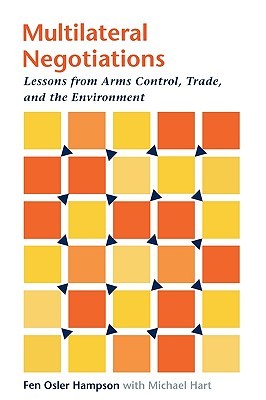
- We will send in 10–14 business days.
- Author: Fen Osler Hampson
- Publisher: Johns Hopkins University Press
- ISBN-10: 0801861977
- ISBN-13: 9780801861970
- Format: 15.4 x 22.9 x 2.4 cm, softcover
- Language: English
- SAVE -10% with code: EXTRA
Reviews
Description
Unlike conventional bilateral negotiations, multilateral negotiations are characterized by intensive international discussions that involve multiple actors and interests, highly complex agendas, and differentiated international settings. Political scientist Fen Osler Hampson, with the assistance of trade specialist Michael Hart, studies the component parts of the multilateral negotiation process to identify those factors making for success or failure. The authors argue that multilateral negotiation is, in essence, a coalition-building enterprise involving states, nonstate actors, and international organizations. Individual case studies include discussions on security, the environment, economic issues, and non-governmental actors-such as scientists and environmental groups like Greenpeace International-in prenegotiation and negotiation phases.
EXTRA 10 % discount with code: EXTRA
The promotion ends in 18d.08:34:08
The discount code is valid when purchasing from 10 €. Discounts do not stack.
- Author: Fen Osler Hampson
- Publisher: Johns Hopkins University Press
- ISBN-10: 0801861977
- ISBN-13: 9780801861970
- Format: 15.4 x 22.9 x 2.4 cm, softcover
- Language: English English
Unlike conventional bilateral negotiations, multilateral negotiations are characterized by intensive international discussions that involve multiple actors and interests, highly complex agendas, and differentiated international settings. Political scientist Fen Osler Hampson, with the assistance of trade specialist Michael Hart, studies the component parts of the multilateral negotiation process to identify those factors making for success or failure. The authors argue that multilateral negotiation is, in essence, a coalition-building enterprise involving states, nonstate actors, and international organizations. Individual case studies include discussions on security, the environment, economic issues, and non-governmental actors-such as scientists and environmental groups like Greenpeace International-in prenegotiation and negotiation phases.


Reviews